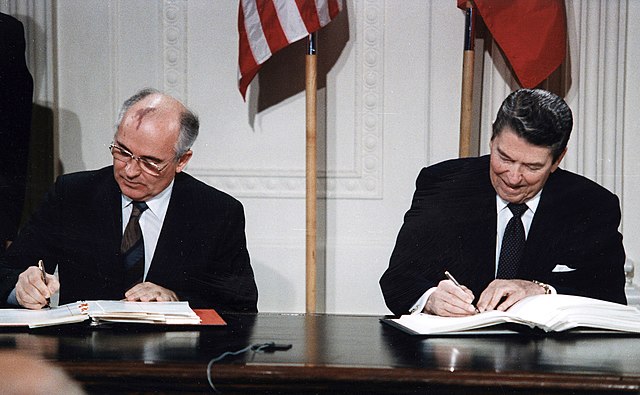
The End of the INF-Treaty: Context and Consequences

On 2 August both the US and the Russian Federation will no longer be restrained by the Intermediate-Range Nuclear Forces (INF) Treaty (1987). Early this century it gradually became clear that Russia wanted to step out of the Treaty, by which it felt itself to be solely restrained. European nations should now take up a greater share of the burden of missile defence, which should get a broader mission than it has today. The debate on EU strategic autonomy can be an instrument in this endeavour. Because of the worsening security environment NATO’s nonstrategic nuclear capability becomes even more important. European NATO allies and EU member states may very soon be confronted with difficult and fundamental choices for a future without the INF Treaty, which need to be communicated and explained to their national population.
(Photo credit: Wikimedia Commons)